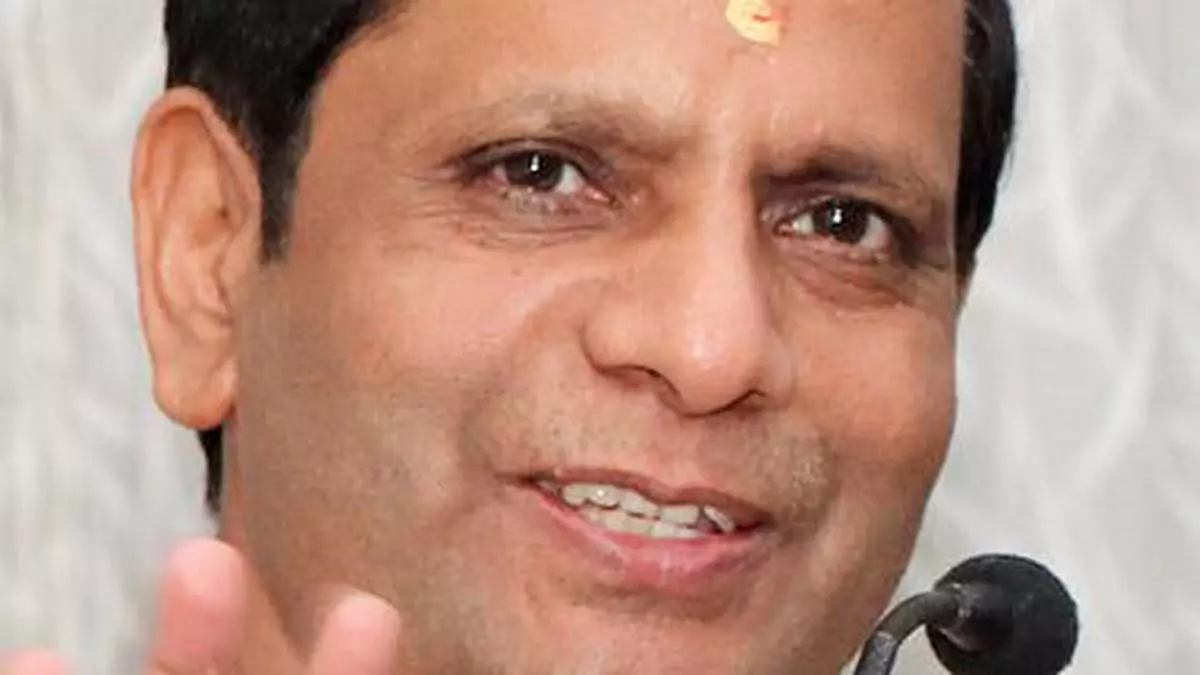Technology can help cut farm-to-plate food wastage to 15%, says ICAR D-G
India is wasting 20-25 per cent of food from farmer field to consumer plate, including wastage of cooked meals, which can be reduced to 10-15 per cent through use of technologies, said Himanshu Pathak, Director General of Indian Council of Agricultural Research (ICAR).
Addressing the annual general meeting of ICAR, Pathak said the top sccientific body in the farm sector would focus on various measures to address the challenges faced by farmers, including the effects of climate change. Increasing agricultural mechanisation to 50-60 per cent, adopting precision farming practices, reducing intra- and inter-regional variability in crop and livestock productivity by 2030 are some of the issues he highlighted for which ICAR has already been working to find solution.
- Also read: Don’t waste crop residue
“Along with this, we need to follow sustainability standards to preserve agricultural diversity, water use efficiency and improved ecosystem services,” Pathak said.
4 major challenges
Pointing out that India’s foodgrain production needs to be raised to 437 million tonnes (mt) by 2047 from current 330 mt, he said 68.7 mt of food gets wasted annually, which is equivalent to 50 kg per person. “Through technological intervention, this can be brought down to 15-20 per cent,” he said.
Pathak also listed four major challenges — decreasing water availability, degrading soil, increasing pest and diseases, and intensification of climate change — before Indian farm sector and said that ICAR has already made the country self sufficient though its research and will strive to live upto the expectations.
He listed some priorities areas for research that ICAR has decided to undertake in next few years to overcome the challenges. The priorities include development of a climate-resilient agri-food system, nature-friendly, sustainable and profitable agriculture, focus on digital and secondary agriculture, as well as on import substitution and export promotion.
The ICAR D-G said productivity of foodgrains crops has increased from 0.7 tonnes/hectare in 1970 to 2.4 tonnes in 2022-23, as a result the foodgrains output more than trippled since 1970 despite the net sown area constant at 140 million hectares.
Munda lauds ICAR work
Addressing the AGM, Agriculture Minister Arjun Munda said: “We have to pave the way for the progress of farmers by working rapidly towards solving challenges like climate change and soil erosion. It is a matter of happiness that ICAR is playing an important role in this. While ICAR had released 1,225 high-yielding crop varieties during 2005 to 2014, 2,279 such varieties have been released during 2014 to 2023, which is almost double.”
Now that the focus is on nutritional security, ICAR has been working on development of bio-reinforced varieties. The suggestions coming in the meeting will be very helpful in moving forward effectively in this direction, he said. Efforts should be made to ensure that even the smallest farmers living in remote areas become self-reliant, progressive and their agricultural production increases to make them self-reliant in every aspect, he said.
